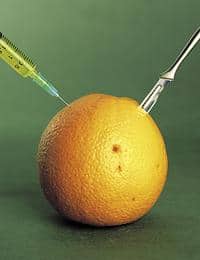It is recommending using wheeled bins rather than plastic sacks for the collection of household waste, as well as puncture-resistant clothing for collection operatives.
Along with industry group WISH, the Waste Industry Safety and Health Forum, it has published a good practice guide to the handling of syringe needles.
Waste collection staff have reported finding syringes in black bags of household waste, the HSE said, including incidences of drugs users pushing needles through tied knots of waste sacks.
Needles have also been discovered in end-of-life vehicles, used clothing bags and in green waste containers.
Employers
Under the Management of Health and Safety at Work Regulations it is a legal requirement for employers to carry out a risk assessment of their business activities. The HSE's new guidance suggests establishing a “needle finds reporting system” to identify who is at greatest risk and where syringes are must likely to be found.
The HSE recommends employers: “Discuss health and safety issues with your staff and safety representatives. They know what actually goes on during collections and can help develop practical solutions to problems.”
Other HSE advice on protecting workers includes:
-
“Sharp-resistant containers” such as wheeled bins for household waste instead of plastic sacks
-
Equipment for handling and disposal of sharps such as tongs or a dustpan and brush
-
Puncture resistant clothing to protect the arms of operators throwing rubbish into a bin lorry
-
An adequate first aid box with clean water, sterile wipes and dressings
Any employee who does suffers a puncture wound should contact the nearest Accident and Emergency department to seek medical advice, the HSE stressed.
Under the Reporting of Injuries, Diseases and Dangerous Occurrences Regulations, puncture wounds from contaminated needles should also be reported to the HSE or the local authority.
Training
As it published the new guidance on sharps injuries, the HSE also released a new document on health and safety training for the waste management sector. This includes five key areas – slips, trips and falls; personal protective equipment; manual handling; workplace transport; legislation and responsibilities.











Subscribe for free